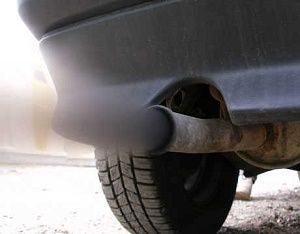UNRESTRAINED HEALTH RULES: The CCJS is a respected think-tank based at Vauxhall in London.
They put the blame on the government’s weak and unrestrained law breaches on bad food and anti-pollution issues.
The weak laws are the leading cause associated with ‘thousands of people dying unnecessarily in United Kingdom each year’.
A Professor and head of social policy and criminology at the Open University gave the most damning report.
He declared that almost 30,000 deaths are attributable to airborne pollution. Injuries or health problems in the workplace account for another 50,000 fatalities each year.
He completed his claim by stating that food poisoning kills around 500 individuals annually. Around 20,000 people need hospital care for the same reason.
Local Authority Health and Safety Inspections
These figures were on the conservative side. The government should promote a stricter regulatory environment. Doing so could avoid a significant number of these deaths.
Reports also suggest that successive governments have allowed independent inspections on business activities to go unchecked for far too many years. The result appears to show damaging consequences for public health and safety in the United Kingdom.
There are too many unrestrained businesses operating illegally and with hazardous products. A local authority health and safety inspection is most likely to happen once every 20 years.
To prove a point, in the period between 2004 and 2013 there were:
- 34% fewer food standards inspections with 28% fewer prosecutions.
- 53% fewer health and safety inspections with 40% fewer prosecutions.
- 56% fewer environmental health inspections with 40% fewer prosecutions.
A quote from the Open University Professor said:
“This is not about rules, regulations, and red tape. It is about lives lost and shortened. It makes the health of communities, workers, and consumers poorer. This is avoidable business-generated, state-facilitated social murder. And quite remarkably it proceeds daily, met largely by political silence.”
Self-regulation of Social Protection
Can we trust self-regulation of social protection where it was once overseen by public bodies? Perhaps we should not.
The shift is towards self-regulation or using private firms to carry out regulatory work. It is being blamed for a softening of the environmental public health and safety laws.
 The TUC New Economics Foundation found that 44% of local government expenditure now goes to external contractors for environmental and regulatory services.
The TUC New Economics Foundation found that 44% of local government expenditure now goes to external contractors for environmental and regulatory services.
It got termed as ‘the transformation of a system of social protection. Which, for all its limitations, has existed since the 1830s in the United Kingdom’.
Trusting businesses to act in the interest of public health and safety needs robust, state-backed regulation. Finding evidence to prove this is not difficult. Consider the Volkswagen diesel emissions scandal.
Add to that the public uproar surrounding horsemeat in the food chain. Despite all this, the government adamantly says it is retaining its commitment to tackling environmental health issues.
Government Tackling Air Pollution
The Commons environment committee attacked the government. They cited a failure to adequately tackle the country’s problem with air pollution.
A warning arose that 40 – 50,000 premature deaths occur each year because of weak anti-pollution laws in the United Kingdom. The accusations continued. They said their failings lead to increased respiratory and other cardiac diseases.
More Clean Air Zones in England
It is likely that more clean air zones will extend to extra cities in England. They have already made their mark in London, Birmingham, Leeds, Derby, Nottingham, and Southampton. These clean air zones target drivers of high-polluting vehicles.
Defra is the Department for the Environment, Food and Rural Affairs. They confirmed that the government is firmly committed to improving public health in this country. Improving air quality remains a priority. It prompted further plans for a new programme of more clean air zones in England.
Encouraging the uptake of low emission vehicles and continued investment in clean technologies is key. It should help create breathable, cleaner, and healthier air for everyone.
ALSO IN THIS SECTION
Articles on Health and Safety: Topical stories about health regulations and safety rules.
Asthma Inhalers: Medical experts call for an industry-wide standard for inhaler colour coding.
Dementia Supplements: Are the benefits substantiated or are they a myth?
Fuel Duty Rates: Check the taxes on petrol, diesel, and other fuels used for heating.
Health and Wellbeing: A guide for taking charge of your own physical and mental health.
Norovirus Stomach Bug: Follow these 7 tips to defeat the sickly winter vomiting virus.

